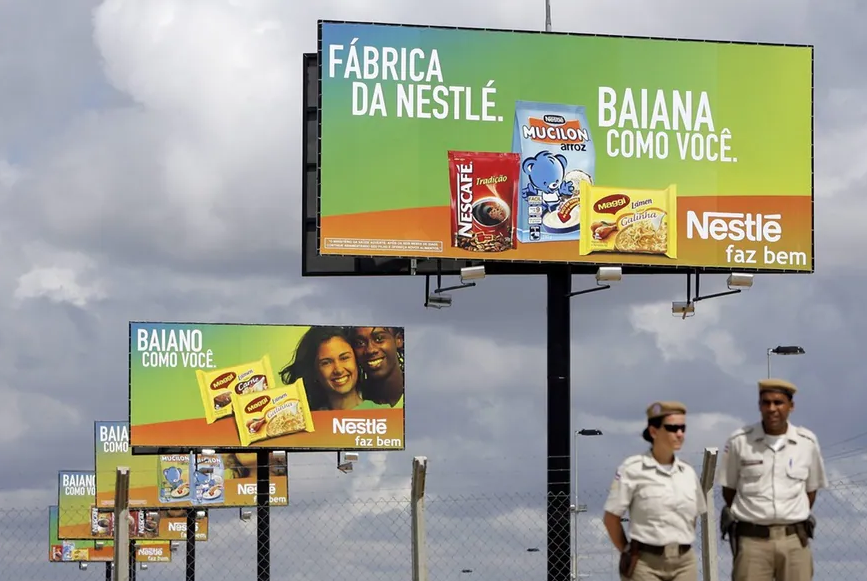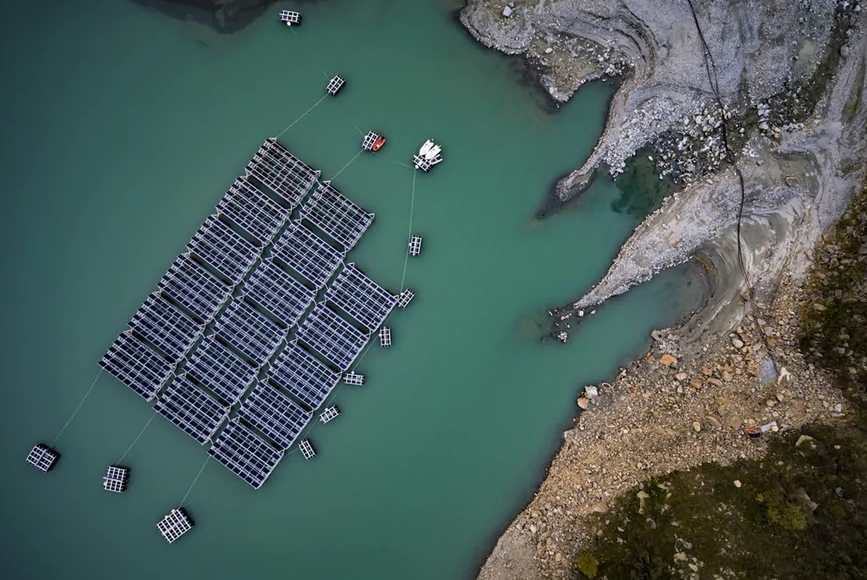As the price of food soars in Brazil, many Nestlé employees there are struggling to feed themselves. Keystone / Peter Klaunzer The Swiss multinational is celebrating 100 years in Brazil but its poorest workers face food voucher cuts amid rising food prices caused by the pandemic. After a century of doing business in Brazil – Nestlé’s fifth largest market with CHF2.79 billion (.94 billion) in sales in 2020 – the Swiss food manufacturer faces the discontent of trade unions in the South American country. At its chocolate factory in Vila Velha (one of its 31 Brazilian units) in Espírito Santo state in the southeast, the company plans to halve food voucher benefits – from BRL 680 (115 CHF) to BRL 350 (59 CHF) – having already reduced the share of profits passed on to
Topics:
Swissinfo considers the following as important: 3) Swiss Markets and News, 3.) Swissinfo Business and Economy, Business, Featured, newsletter
This could be interesting, too:
RIA Team writes The Importance of Emergency Funds in Retirement Planning
Nachrichten Ticker - www.finanzen.ch writes Gesetzesvorschlag in Arizona: Wird Bitcoin bald zur Staatsreserve?
Nachrichten Ticker - www.finanzen.ch writes So bewegen sich Bitcoin & Co. heute
Nachrichten Ticker - www.finanzen.ch writes Aktueller Marktbericht zu Bitcoin & Co.

As the price of food soars in Brazil, many Nestlé employees there are struggling to feed themselves. Keystone / Peter Klaunzer
The Swiss multinational is celebrating 100 years in Brazil but its poorest workers face food voucher cuts amid rising food prices caused by the pandemic.
After a century of doing business in Brazil – Nestlé’s fifth largest market with CHF2.79 billion ($2.94 billion) in sales in 2020 – the Swiss food manufacturer faces the discontent of trade unions in the South American country.
At its chocolate factory in Vila Velha (one of its 31 Brazilian units) in Espírito Santo state in the southeast, the company plans to halve food voucher benefits – from BRL 680 (115 CHF) to BRL 350 (59 CHF) – having already reduced the share of profits passed on to workers. The factory produces Garoto chocolates – a popular brand acquired by Nestlé in 2001 and which made the Swiss food giant a leader in Brazil’s chocolate market at the time.
“That this should happen during the Covid-19 pandemic situation is really outrageous. We will resist and even go on strike, if necessary,” says Linda Morais, the local union president.
The decision to cut food benefits was communicated in January but rejected by the factory’s employees. The announcement came at a time of decent results for Nestlé in Brazil: 2020 sales increased by 5.7% compared to 2019 (in Brazilian Reais), according to the company’s latest annual report.
Countrywide cuts
The cuts at the Vila Velha factory, located in a city of some 500,000 inhabitants, is not an isolated case. Two chocolate and milk product units in Feira de Santana, in the state of Bahia in the northeast of the country, were also affected. Last November, the company reduced profit sharing and halved the food ticket value for more than 600 employees.
“This mainly affects the shop floor worker, who earns less and who makes up the majority of the staff. Concerned about the possibility of dismissals, we had to agree to company’s proposal,” says Eduardo Sodré, director of the Food Workers Union (Sindialimentação), which negotiates with the company in Bahia.
According to him, last year Nestlé dismissed more than 100 employees at Feira de Santana’s plants, in addition to closing down another unit in Itabuna, a city 350km to the south.
“With unemployment on the rise in the country [14% in 2020], the workers felt uncertain. We had no way out,” says Sodré.
Food benefits
In Brazil, food aid, given in the form of tickets that employees can exchange for products in supermarkets, is not mandatory, but it is usually offered by companies as a benefit to their employees. In practice, it supplements a worker’s salary and can be a lifeline for low wage workers.
The loss of food benefits also comes at a harsh time. Brazil faces a worsening Covid-19 pandemic situation, which has already left over 310,000 dead. Many cities, including Vila Velha, where the Garoto chocolate factory stands, have adopted lockdown measures, restricting circulation and closing down businesses such as restaurants and bars. In addition, there is a continuous rise in food prices, which affects low wage workers the most.
For example, the price of rice and beans, which make up the staple diet of most Brazilians, rose 76% and 45% respectively in 2020. This is well above the average national inflation rate, which reached 4.5%. Other essential products, such as meat, cooking oil and sugar, have also risen in recent months. The devaluation of the Brazilian Real, seasonal factors and the rise in food exports in recent years, explain the disparities.
Jobs or benefits
Although Nestlé Brazil is a single company, labour negotiations are carried on regionally with different trade unions. In practice, they happen factory by factory. According to union members, the cutting of food benefits first began in São Paulo, where the company has half of its workforce. In 2019, the company dismissed more than 200 workers there but had to reinstate them after a court order. But in return the unions were forced to accept an agreement that reduced employee benefits, including food vouchers.
“With the country facing a steady rise in unemployment, we had no alternative,” explains Artur Júnior, vice president of the National Confederation of Workers in the Food and Related Industries (CNTA Afins). The entity represents a couple of trade unions that negotiate with the company.
According to Júnior, Nestlé, like many other major companies, is taking advantage of Brazilian labour reform approved by National Congress in 2017. The reform reduced the bargaining power of the unions by expanding the possibility of outsourcing labour, which opens the door for layoffs. The reform, a comprehensive revision of Brazilian labour laws that had existed unchanged for over 70 years, also extinguished the union tax thereby eliminating an important source of funding for trade unions in the country.
“Keeping a labour campaign active is costly. You need to have a reliable car, print pamphlets, and produce content for social media. In the midst of the Covid pandemic, all this gets even more difficult. But we will carry on questioning food benefit cuts as far as we can,” says Morais from Vila Velha’s local trade union.
Better future?
Nestlé’s first factory in Brazil was installed in 1921 in Araras, in the state of São Paulo, to produce condensed milk. Today the company has more than 20,000 employees, with production units in eight Brazilian states and 25 cities. To mark a century of presence in the country the company has launched an advertising campaign with the motto “nurturing a better future”.
But many workers are finding it difficult to put food on the table during the pandemic. Take the case of 32-year-old Ronivaldo de Jesus Almeida, a warehouse assistant at Nestlé’s Vila Velha factory. The food voucher provided by the company corresponds to about a third of the value of his salary, of BRL 1,944.00 (CHF 322).
“I spend the ticket money on basic cleaning products and to supplement the food budget at home. A cut in half of this benefit will mean that I will no longer be able to buy meat, and perhaps not even eggs, which are very expensive at supermarkets right now,” he says.
Like most Brazilian women, Almeida’s wife doesn’t have a steady income and the family also has to support a daughter. Having worked at the Vila Velha plant for a decade, Almeida sees the cut in food benefits as “disrespectful”.
On its website, Nestlé claims that it is doing a lot for its employees and communities in need in response to the Covid pandemic. It specifically makes reference to improving food security.
“We have donated to food banks, food delivery organizations and relief organizations such as the Red Cross and Red Crescent to support people in need,” it states, adding that “Where needed, we are offering free meals and transport for staff to help reduce the risk they fall ill.”
Yet in Brazil the company is prepared to cut food benefits of its own workers. When contacted by SWI swissinfo.ch, Nestlé in Brazil stated, via its press office, that it “does not comment on the content of ongoing negotiations” with its unions and employees.
Tags: Business,Featured,newsletter








